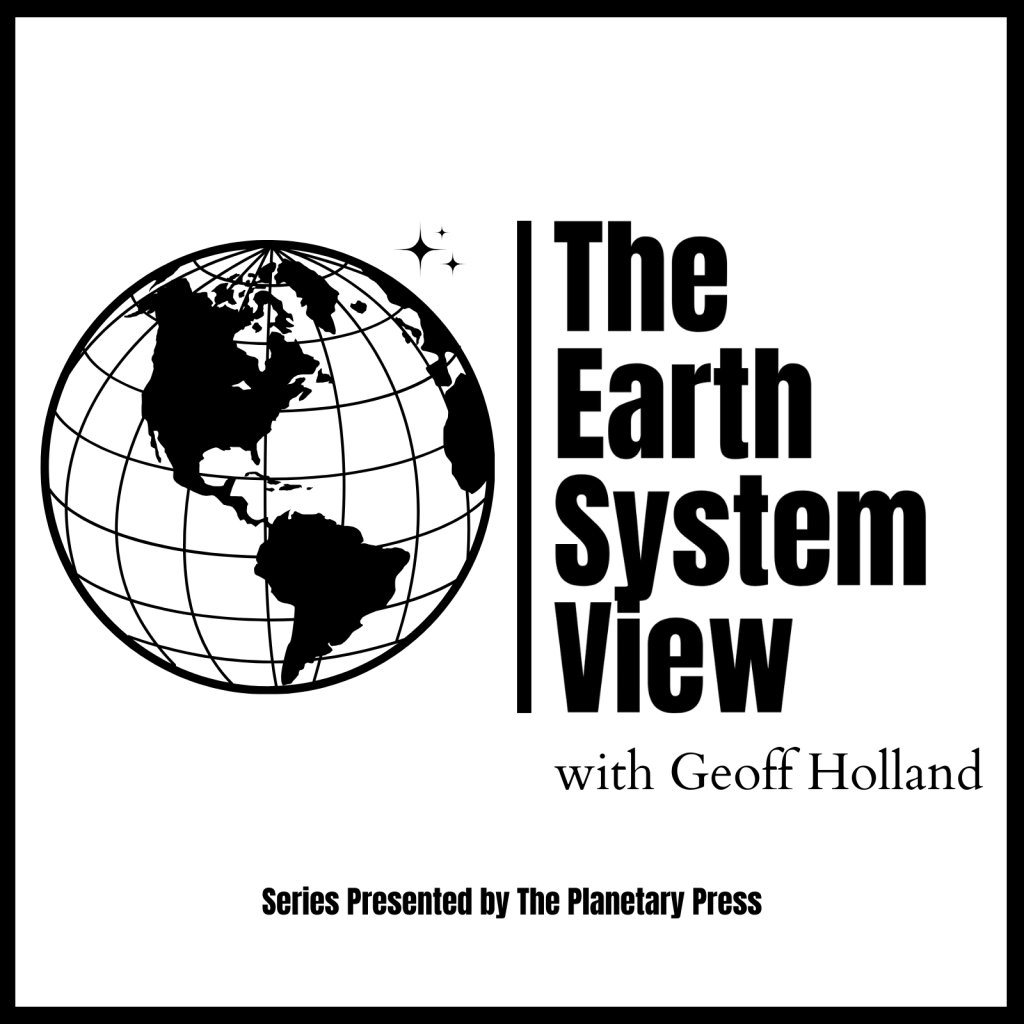
Victor Vahidi Motti, based in Washington, D.C., is a distinguished Foresight Scholar. His contributions extend across various mediums, notably his 2019 publication, “A Transformation Journey to Creative and Alternative Planetary Futures”. This work is emblematic of his visionary outlook, which also finds expression in his recent collaborative effort in 2021 when he co-founded the Alternative Planetary Futures Institute (Ap-Fi) think tank, a nonprofit and non-commercial entity dedicated to advancing research and advocacy programs centered on planetary consciousness.
In addition to his prolific written work, Victor Vahidi Motti’s influence resonates globally as Executive Director of the World Futures Studies Federation (WFSF) and Managing Editor of the European Journal of Futures Research (EJFR).
Geoffrey Holland: Your organization, the Alternative Planetary Futures Institute (Ap-Fi), has unveiled a Vision for a Planetary Future, which encompasses the Progressive & Cyclical Macrohistory Framework. This framework delineates four distinct ages of human civilization: the 1st Nomad Age, the 1st Settlement Age, the 2nd Nomad Age, and the 2nd Settlement Age. It emphasizes increasing levels of creativity and complexity, interwoven with mythologies evoking god-like powers. How does this framework illuminate the interconnectedness of past and future ages, along with the recurring themes that define them?
Victor Vahidi Motti: In this pivotal juncture of human existence, the Ap-Fi’s analysis perceives humanity at the brink of a transformative journey toward collective consciousness fueled by our envisioned planetary future. Inspired by a fusion of Scientific Pantheism and Simurgh mythology, our narrative unfolds as a guiding beacon towards a harmonious and transcendent destiny anchored by seven core principles. These principles encompass the evolution of the self in mind and spirit, compassion towards others, stewardship of the planet, celebration of life, awe for the cosmos, harnessing virtual empowerment, and nurturing complexity. A journey through these valleys of transformative integral foresight offers profound insights into humanity’s evolutionary trajectory and our capacity for collective advancement.
These moral metrics and transformative technologies pave the way for the 2nd Nomad Age fulfillment, characterized by digital metamorphosis, and enable the 2nd Settlement Age, epitomizing space exploration under our unified planetary identity.
GH: How does your analysis suggest that gender equality within each age could influence the trajectory of human civilization, especially considering the framework’s emphasis on increasing levels of creativity and complexity?
VVM: The analysis delves into the intricate interplay between gender dynamics and the evolution of human civilization, contextualized within the framework’s focus on advancing creativity and complexity. Initially, during the era of settlement, Zoroastrian and Abrahamic patriarchal mythology-theologies and structures wielded considerable influence, often intertwined with dominant religious narratives that elevated male figures. This historical backdrop has left a lasting imprint on societal norms and power dynamics.
However, as we transition into a new age marked by digital innovation and AI integration, the landscape is evolving. The emergence of female god-like powers within this technologically driven milieu signals a reevaluation of traditional gender mythical and, as a result, societal roles. In this era characterized by virtuality and interconnectedness, there’s a burgeoning recognition of the value of feminine attributes such as empathy, collaboration, and ecological stewardship.
This paradigm shift carries profound implications for the trajectory of human civilization. Instead of perpetuating cycles of conflict and domination, there’s a growing emphasis on harmonious coexistence and sustainable development. The narrative expands to encompass themes of nurturing, regeneration, and collective well-being, mirroring ancient myths of goddesses like Inanna or Ishtar.
The symbolism of the female figure on the cover of “Beyond Knowledge” by Bill Halal serves as a visual representation of this evolving paradigm. It encapsulates the potential for gender equality to not only shape cultural practices but also to catalyze a more inclusive and enlightened path forward for humanity.

GH: Have you observed any recent events or cultural shifts indicating the dawn of a new era in human evolution?
VVM: Over the past few years, there has been a noticeable rise in awareness about interconnectedness and a resurgence of interest in mystical and philosophical traditions emphasizing unity amidst diversity, simplicity within complexity, and cooperation amid conflicts. This cultural shift signifies the emergence of a new era, marked by advancements related to the maturing of the second nomad age, characterized by simulation, virtual reality, AI, digital transformation, and the burgeoning second settlement age, focusing on space exploration.
While the conventional narrative of space exploration often revolves around colonizing distant planets with technology and human settlements, there’s a deeper perspective inspired by the ancient concept of Vayu-Vata. Originating from Indo-Iranic mythology, Vayu-Vata symbolizes the interconnectedness and underlying significance of atmosphere, breathing, and biosphere in the evolution of life and consciousness. This holistic view redefines our space exploration vision, moving beyond mere colonization to the creation of atmospheres and biospheres that sustain new life beyond Earth.
This perspective shift embraces the uniqueness of each celestial body and acknowledges the potential for diverse forms of life to flourish under varied conditions. Moreover, it challenges anthropocentric bias by recognizing the intrinsic value of non-human life forms and the diversity of evolutionary paths across the universe.
GH: Reflecting on recent cultural shifts and events, how do you perceive their alignment with the overarching themes identified by the Ap-Fi’s Progressive & Cyclical Macrohistory Framework, particularly regarding the interplay of creativity and complexity across different ages?
VVM: Recent cultural shifts and events often resonate with the overarching themes identified by the Progressive & Cyclical Macrohistory Framework, illustrating the ongoing interplay of creativity and complexity across different ages. Whether it be advancements in technology, changes in societal norms, or shifts in global dynamics, these developments reflect the cyclical nature of human history and the enduring relevance of mythological narratives in shaping progressive collective consciousness. Through this lens, we discern the threads of continuity and evolution that bind past, present, and future ages.

GH: In the midst of humanity’s unprecedented juncture, Professor Bill Halal, acclaimed author of “Beyond Knowledge,” envisions a significant turning point on the horizon. By approximately 2030, he anticipates the emergence of a monumental idea, akin to an Earth System Treaty, which will serve as a unifying beacon, rallying people worldwide behind a noble common cause. How does this projection fare under scrutiny?
VVM: Professor Halal’s foresight resonates with our analysis, mirroring the sentiments of Ap-Fi’s Progressive & Cyclical Macrohistory Framework. This framework underscores humanity’s current imperative for collective action and cooperation, a sentiment echoed in my book on Alternative Planetary Futures, particularly in the concept of the Constitution for the Geopolis. Such a treaty, akin to stewarding the planet and honoring the cosmos, possesses the potential to galvanize planetary unity in safeguarding our shared home. It signifies a beacon of hope, fostering international collaboration and collective responsibility for a sustainable, interconnected future.
Drawing from diverse sources such as Scientific Pantheism and Attar of Nishapur’s allegorical narrative of the “Conference of the Birds,” I present a roadmap towards humanity’s collective evolution. Central to this vision are seven guiding principles: evolving the self (Talab), loving the other (Eshq), stewarding the planet (Marifat), praising life (Istiqna), revering the cosmos (Towhid), empowering the virtual (Heyrat), and enriching complexity (Faqr). This comprehensive approach underscores the depth of our potential transformation.
GH: Considering the transformative potential of big ideas or initiatives, how do you envision them aligning with the principles delineated by the Progressive & Cyclical Macrohistory Framework, and how might they shape the trajectory of future ages?
VVM: Big ideas or transformative initiatives hold the power to catalyze shifts in human consciousness and shape the trajectory of future ages, resonating with the principles delineated by the Progressive & Cyclical Macrohistory Framework. Whether it be an Earth System Treaty or other visionary endeavors based on both moral metrics and transformational technologies, these initiatives reflect humanity’s capacity for wild, fresh imagination, creativity and innovation, embodying the spirit of god-like power as outlined by the framework. By aligning with the principles of increasing levels of creativity and complexity, such initiatives have the potential to usher in new epochs of human civilization.

GH: In the digital age, where misinformation proliferates, how do you propose leveraging technology in alignment with the principles of the Progressive & Cyclical Macrohistory Framework to elevate truth and foster a culture of authenticity?
VVM: I would say light a candle instead of cursing the darkness. In the digital age, the 2nd nomad age, leveraging technology in alignment with the principles of the Progressive & Cyclical Macrohistory Framework is essential to elevating truth and fostering a culture of enriched complexity and authenticity. By harnessing the power of digital platforms for knowledge dissemination, critical thinking, reaching out to people beyond the Iron Curtain and who live in authoritarian regimes, and ethical engagement, we can counter the spread of misinformation and cultivate a more informed and discerning society in an expanded Free World.
Through initiatives that prioritize truth and authenticity, we uphold the principles of increasing levels of creativity and complexity, paving the way for a more enlightened and interconnected future.
Stay tuned for more of The Earth System View series!

Hosted by author and veteran Stanford MAHB journalist Geoff Holland, The Earth System View explores the progressive idea of an Earth System Treaty as a solution to our planetary challenges.







